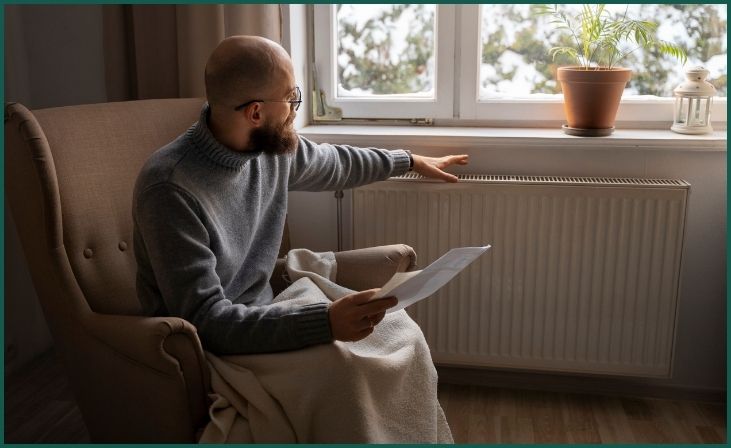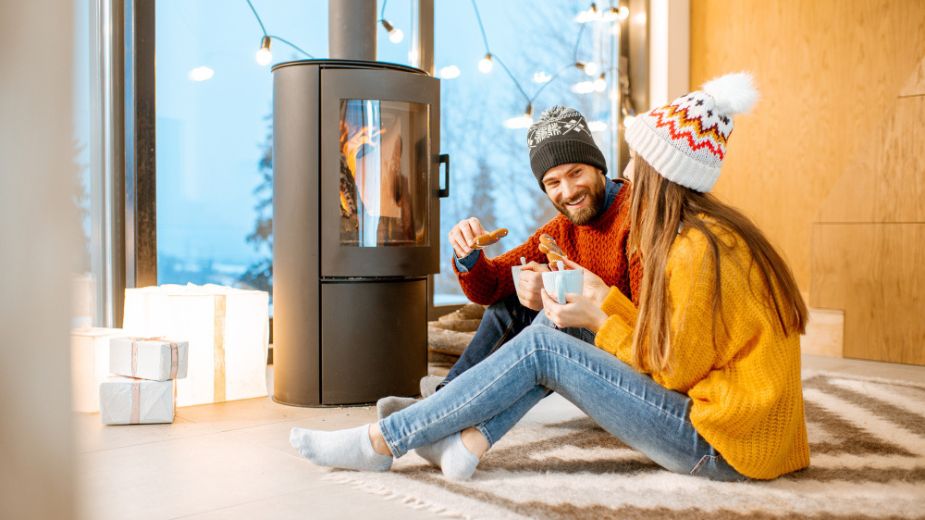As the chilly winter months settle in, many of us turn to room heaters to keep warm and cozy indoors. While these devices are essential for maintaining comfort during cold weather, it’s important to be aware of their potential drawbacks. In this comprehensive guide, we’ll explore seven unexpected drawbacks of using a winter room heater that you may not have considered. From health concerns to safety hazards and energy inefficiency, understanding these drawbacks will help you make informed decisions about heating your home this winter.
Whether you rely on electric heaters, space heaters, or traditional radiators, this blog will shed light on the lesser-known risks associated with their use. By being proactive and taking precautions, you can mitigate these drawbacks and ensure a safe and comfortable winter season for you and your loved ones.
Table of Contents
ToggleDrawbacks of Using a Winter Room Heater
1. Health Risks Associated with Dry Air

One unexpected drawback of using a winter room heater is the potential impact on indoor air quality and health. Room heaters can dry out the air, leading to discomfort such as dry skin, irritated nasal passages, and sore throats. Prolonged exposure to dry air may exacerbate respiratory conditions like asthma and allergies, making it essential to maintain proper humidity levels in heated spaces. Without adequate moisture, individuals may experience increased susceptibility to respiratory infections and other health issues. To mitigate these risks, consider using a humidifier in conjunction with your room heater to maintain a comfortable and healthy indoor environment.
Read Also: 10 Breathtaking World Wonders to Visit
2. Fire Hazard Due to Overheating
Another surprising drawback of winter room heaters is the risk of fire hazards, especially when used improperly or left unattended. Overheating of the heater or surrounding objects, such as curtains or furniture, can lead to accidental fires with devastating consequences. Additionally, flammable materials placed too close to the heater pose a significant risk of ignition.
To minimize the risk of fire, ensure that your heater is placed on a stable surface away from combustible materials and never leave it running unattended. Regularly inspect and maintain your heater to detect any signs of malfunction or wear and tear that could increase the risk of fire.
3. Carbon Monoxide Poisoning from Improper Ventilation
Improper ventilation of winter room heaters can pose a silent but deadly risk of carbon monoxide poisoning. Fuel-burning heaters, such as gas or kerosene models, produce carbon monoxide as a byproduct of combustion, which can accumulate to dangerous levels in enclosed spaces without adequate ventilation. Symptoms of carbon monoxide poisoning include headache, dizziness, nausea, and fatigue, and prolonged exposure can be fatal.
It’s essential to ensure proper ventilation when using fuel-burning heaters and install carbon monoxide detectors in your home as an added safety precaution. Regularly inspect vents and flues to prevent blockages that could impede proper airflow and ventilation.
4. Energy Inefficiency Leading to High Utility Bills

While winter room heaters provide warmth and comfort, they can also contribute to higher energy bills, especially if used inefficiently. Older or poorly maintained heaters may consume more energy to produce the same level of heat, resulting in increased energy costs. Additionally, running heaters at high temperatures or for extended periods can further drive up energy consumption and utility expenses.
Don't just scroll, subscribe!
BuzzTrail's unique web-stories are the cure for boredom you've been waiting for.
To improve energy efficiency and reduce heating costs, consider investing in energy-efficient heaters with programmable thermostats and timers. Proper insulation and sealing of windows and doors can also help retain heat and minimize energy loss, ultimately leading to savings on your utility bills.
5. Risk of Electric Shock and Electrical Hazards
Using winter room heaters can pose a risk of electric shock and other electrical hazards if not handled properly. Damaged power cords, frayed wires, or faulty electrical components can increase the likelihood of electrical accidents and injuries. Furthermore, connecting multiple appliances to the same power outlet or using extension cords not rated for the heater’s power load can overload circuits and increase the risk of fire.
To mitigate these risks, regularly inspect your heater’s power cord and electrical connections for signs of damage or wear. Ensure that the heater is plugged directly into a grounded outlet and avoid using extension cords whenever possible. If you encounter any electrical issues or abnormalities, discontinue use immediately and seek professional assistance.
6. Uneven Heating and Temperature Fluctuations

Some winter room heaters may struggle to provide consistent and uniform heating throughout a space, resulting in uneven temperatures and fluctuations in comfort levels. Factors such as room size, insulation, and heater placement can impact the effectiveness of heating distribution. Additionally, drafty windows or doors can allow cold air to infiltrate the room, offsetting the heater’s efforts to maintain warmth.
To address these issues, consider using multiple heaters strategically placed around the room to ensure even heating. Proper insulation and weatherproofing measures can also help minimize heat loss and maintain a comfortable indoor environment. Regularly adjust the thermostat or heat settings as needed to optimize comfort levels while minimizing energy consumption.
7. Noise and Disruption to Indoor Environment
Certain types of winter room heaters, such as fan-forced or radiant heaters, may produce noise during operation, causing disruption to the indoor environment, especially in quiet or shared spaces. The constant hum or fan noise can be distracting and bothersome, particularly during activities that require concentration or relaxation, such as sleeping or studying.
Additionally, heaters equipped with mechanical components like fans or motors may experience wear and tear over time, leading to increased noise levels or operational issues. To mitigate noise-related drawbacks, consider selecting heaters with quieter operation or features designed to minimize sound output. Positioning the heater away from high-traffic areas or using sound-absorbing materials can also help reduce noise disturbance and enhance overall comfort.
Conclusion
While winter room heaters provide much-needed warmth during the cold season, it’s crucial to acknowledge and address their unexpected drawbacks. From potential health risks due to dry air and poor indoor air quality to safety hazards like fire and carbon monoxide poisoning, staying informed is key to protecting yourself and your family. Additionally, the energy inefficiency of some heaters can lead to higher utility bills and environmental impact.
However, by implementing preventive measures such as proper ventilation, regular maintenance, and using heaters responsibly, you can minimize these drawbacks and enjoy a safer and more comfortable winter. Remember to prioritize safety, health, and energy efficiency when using room heaters, and consider alternative heating methods to mitigate their drawbacks whenever possible.
FAQs
Are room heaters safe to use overnight?
Are room heaters safe to use overnight?
While some modern room heaters have safety features for overnight use, it’s generally recommended to avoid leaving them unattended while sleeping to prevent fire hazards. Consider using a programmable thermostat or timed heater for controlled heating during bedtime.
Can using a room heater excessively affect indoor air quality?
Can using a room heater excessively affect indoor air quality?
Yes, prolonged use of room heaters can lead to poor indoor air quality due to the accumulation of dust, allergens, and other pollutants. Regularly clean and maintain your heater and ensure proper ventilation to minimize these effects.

